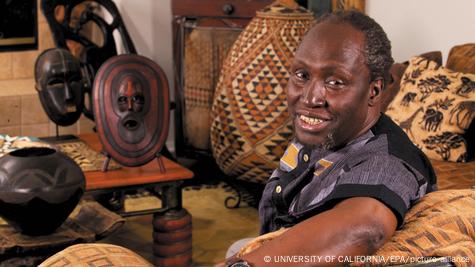
Pumzika Mzee Ngugi waThiongo
Mzee Ngugi, son of Thiongo died at the age 87 on 28 May this week. Rest well, pumzika, Mzee. He was born 1938, Kamirithu, Kenya. He studied at the renowned Makerere University in Uganda.
His family participated in decolonisation of Kenyan land from the British. One brother was killed in the Mau Mau Uprising and another brother was actively involved in the Kenya Land and Freedom Army. His mother was tortured.
Ngugi was well known for decolonisation on a personal level and at the societal level. On a personal level he rejected the Christian English name James he got after baptism and popularised creating and writing books in his African language, Gikuyu. On a societal level, he challenged Africans, especially politicians from perpetuating the ways of the coloniser. Though the African politicians were not happy, they got the messages through his publications and plays such as Ngaahika Ndeenda and Petals of Blood but politicians such as former president Daniel Arap Moi were sometimes brutal, imprisoning and harassing him. As a result, he went into exile, where he died this year after living for several years.
Ngugi’s worked has come together in a theory of decolonising the mind (use button below access the theory). For him, colonial languages, colonial religions and colonial literature are major ingredients for decolonising minds.
His works include:
- Weep not, Child (1964)
- Matigari (1986)
- Wizard of the Crow or Murogi wa Kagogo (2006)
- The Black Hermit (1968); A Grain of Wheat, 1967
- The River Between (1965)
- Petals of blood (1977)
- Decolonizing the Mind (1986)
- Moving the Centre: The Struggle for Cultural Freedom (1993)
- Moving the Center (1994)
- Penpoints, Gunpoints and Dreams (1998) and many others.
Pumzika, Mzee Ngugi waThingo
1938-2005
Use the form below to subscibe to Owia Bulletin.
Discover more from Africa Social Work & Development Network | Mtandao waKazi zaJamii naMaendeleo waAfrika
Subscribe to get the latest posts sent to your email.


